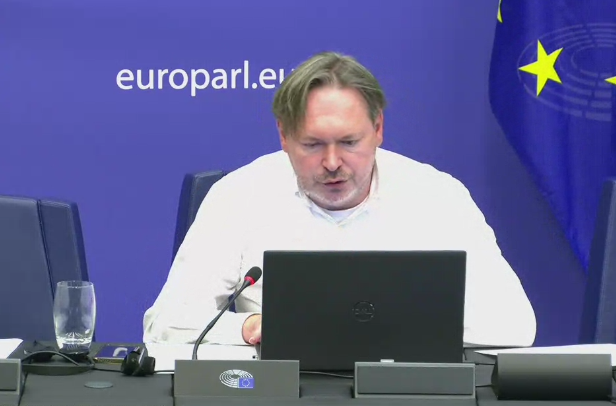
“To establish constitutional control over the rule of law of the EU institutions is very needed” – said political scientist Prof. Tomasz Grzegorz Grosse, lecturer at the University of Warsaw, during the conference “Christian and social thought in shaping the future of Europe” organized by the Institute of Schuman’s Thought, which took place on May 10 at the European Parliament building in Strasbourg.
Prof. Tomasz Grzegorz Grosse drew attention to “rising of judicary activism in the EU”, noting that it is “constraining member states democraces and we have some kind of shift from national democracy to a technocracy, which is rules of European officials, and from national democracy towards judicracy, which means the rule of judges in contemporary Europe”. At the same time, he made people sensitive to the need to respect the Treaties in terms of the division of competences.
The political scientist also pointed to the issue of maintaining the state of emergency in the European Union as an environment conducive to abuses. “We have permanent time of so called emergency rule, which is related to consecutive European crisis and it is much easier for European institutions to extend own powers, extend own competences in such extraordinary time, so breaking EU law in crises is much common, frequent that in normal times” – he explained.
He also drew attention to the increasing politicization of EU institutions, including the European Court of Justice.
Notes of prof. Grosse also did not miss the ideologization of the European Union. “On the matter of discussion of so called rule of law, or so called European values, left wing politicians try to establish equality between left wing axiology and European values, which are promoted for instance in Poland or other memberstates from Central Europe” – he noticed.
What alternative?
As an alternative to the current EU model, prof. Grosse gave a decentralized model, “based on subsydiary and democratic values”. He also pointed to the need to “restore clean, boundary line between European and national competences”. “To establish constitutional control over the rule of law of the EU institutions is very needed” – he postulated. He also pointed out that the European Union should respect the constitutional orders of the Member States, i.e. restore compliance with Art. 4 TEU.
“We should restore solidarity mechanisms, which should be based on voluntarity and true solidarity among nations” – he said.
“We need more flexibility, more adaptations to local and national conditions in various European policies” – he added. Prof. Grosse emphasized that “we should stop cohesion practices related to imposing European values, usually left wing values on national democracies”.
“Maintaining unanimity of decisions on matters important for national security, sovereignity and democracy is needed” – he stated.
Anna Wiejak
